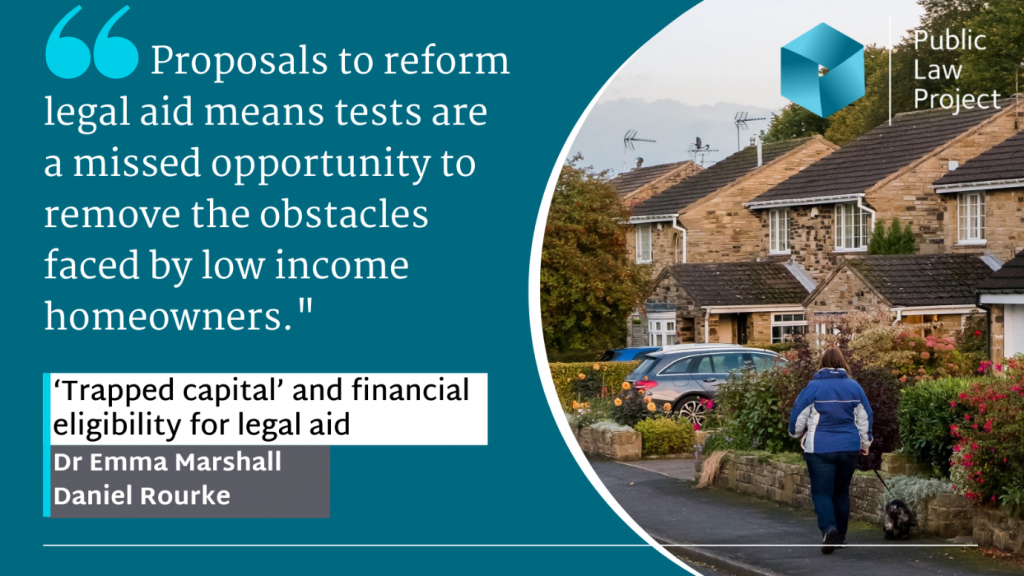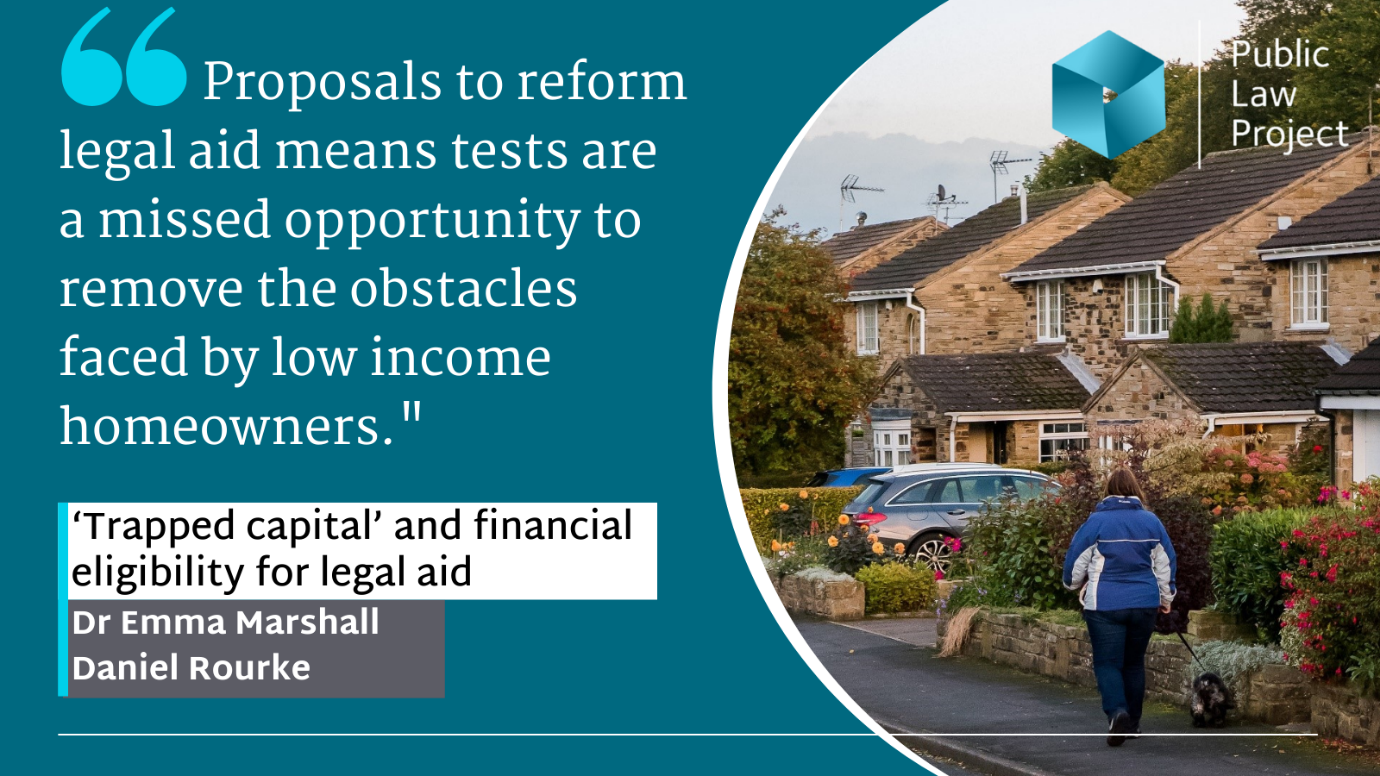One third of low income homeowners including victims of domestic violence who would otherwise be eligible for legal aid are being denied help because they are deemed to have capital in their home despite not being able to access it. New research from the Public Law Project reveals that despite a ruling in 2020 affecting those with trapped capital, significant hurdles remain preventing access to public funded legal advice including ‘a culture of refusal’ at the Legal Aid Agency (LAA).
The study, co-authored by Dr Emma Marshall and PLP solicitor Daniel Rourke, draws on surveys and interviews with providers, support workers, and a domestic violence charity found that individuals are still unable to access legal aid in ‘30% of “trapped capital” cases’. ‘These findings are deeply concerning,’ commented Dr Marshall. ‘Unfortunately, the proposals outlined in the Government’s ongoing Means Test Review do not offer much cause for optimism.’
According to the authors, relying on the LAA to exercise discretion terms of discounting trapped capital is ‘problematic given the broader culture of refusal that is reported by those who frequently deal with the Department’.
PLP argue that problems persist despite a case brought in 2020 by PLP clients which led to new regulations providing that when valuing a home as part of the capital test, the full value of any mortgage can now be deducted; and new guidance to confirm that the LAA has a discretion to value a home ‘equitably’ (including by valuing it at £0), if there would otherwise be a breach of convention rights/the common law right of access to the court. That case (R (GR) v Director of Legal Aid Casework) concerned ‘Claire’ who was unable to sell her house to pay for legal advice as it was the family home where she wished to continue living with her children. Claire’s entitlement to an equal share of any potential proceeds from the sale of the property was also disputed by her ex-partner.
The report references a survey of 239 women affected by domestic violence who were involved in family law proceedings, carried out between 2014 and 2015, where more half of respondents (53%) reported that they did nothing as a result of not being able to apply for legal aid.







